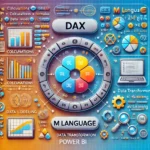Bugzilla vs. GitHub: In the fast-paced world of software development, efficient issue tracking and project management are paramount. Two popular tools that developers often turn to for these purposes are Bugzilla and GitHub. Both are widely used and offer unique features that cater to different needs. In this blog post, we will compare Bugzilla vs. GitHub to help you understand their strengths, weaknesses, and which one might be the best fit for your development workflow.
Bugzilla: An Established Bug Tracking System
Bugzilla is a battle-tested bug tracking system that has been around since 1998. It was developed by Mozilla and has since become an open-source solution used by numerous organizations for issue tracking and project management. Here are some key features of Bugzilla:
a. Comprehensive Issue Tracking: Bugzilla provides a wide range of fields to document bug reports thoroughly. This allows developers to add detailed descriptions, set priorities, track progress, and attach relevant files.
b. Customization: Bugzilla offers extensive customization options to adapt to different project needs. Administrators can define custom fields, workflows, and issue statuses, making it highly adaptable to various development processes.
c. Robust Search and Reporting: Bugzilla’s advanced search capabilities allow users to filter and find issues quickly. Additionally, it provides customizable reports and charts for better visibility into project health and progress.
d. Integration with Version Control Systems: Bugzilla can integrate with various version control systems, allowing developers to link bug reports to specific code changes easily.
https://synapsefabric.com/2023/07/24/bugzilla-vs-trac-a-detailed-comparison-of-bug-tracking-and-project-management-tools/
GitHub: The Powerhouse of Collaborative Development
GitHub, on the other hand, is not just an issue tracker; it is a complete code hosting platform and collaboration hub. It has gained immense popularity in recent years and has become the go-to platform for open-source projects. Here are some prominent features of GitHub:
a. Issue Tracking and Project Management: GitHub’s issue tracking system is tightly integrated with its code hosting platform. Developers can create issues, assign labels, milestones, and link them to specific branches or pull requests, making it easy to manage projects holistically.
b. Version Control and Code Review: GitHub provides robust version control features with Git, enabling seamless collaboration among developers. Pull requests facilitate code review, allowing teams to maintain code quality efficiently.
c. Extensive Third-Party Integrations: GitHub has a vast ecosystem of third-party integrations, including project management tools, continuous integration services, and deployment platforms, making it easy to extend its functionality and adapt to different workflows.
d. Community and Social Aspects: GitHub’s strong community focus promotes collaboration and knowledge sharing. Developers can fork repositories, contribute to open-source projects, and participate in discussions easily.
Comparison
- Usability: GitHub is known for its user-friendly interface and streamlined workflows, making it more accessible to developers of all levels. Bugzilla, while functional, may have a steeper learning curve for new users.
- Customization: Bugzilla excels in offering extensive customization options, making it a great fit for organizations with complex development processes. GitHub’s customization is more focused on integrating with third-party tools.
- Community: GitHub’s large community and open-source focus make it an attractive platform for collaborating with developers worldwide. Bugzilla’s user base, while substantial, may be more limited in certain domains.
https://synapsefabric.com/2023/09/13/phpstorm-vs-vscode-unleashing-the-power-of-code-editors/
Ultimately, the choice between Bugzilla and GitHub depends on your project’s specific requirements and development workflow. If you need a robust and customizable bug tracking system with extensive reporting capabilities, Bugzilla might be the better choice. On the other hand, if you seek an all-in-one platform with strong community support and seamless integration with code hosting and collaboration features, GitHub could be the perfect fit.
In some cases, organizations might even choose to use both Bugzilla and GitHub in tandem, leveraging the unique strengths of each platform. Whichever tool you opt for, effective issue tracking and project management are essential to foster a successful development environment.






